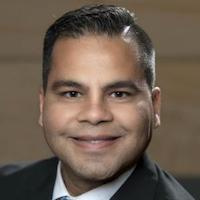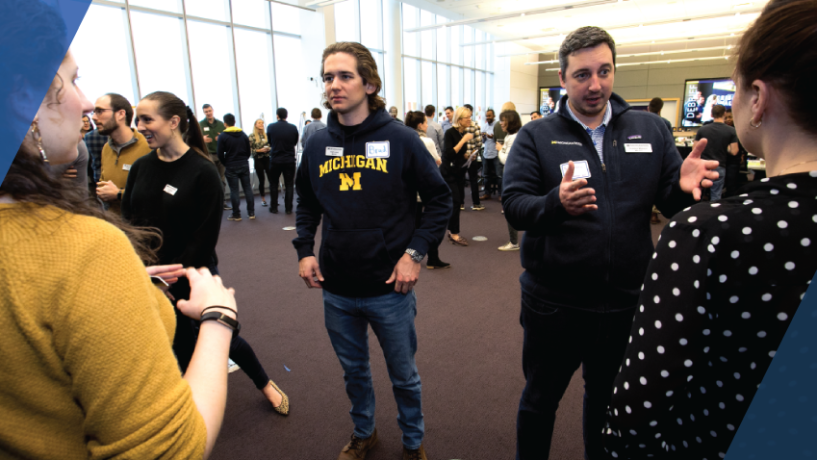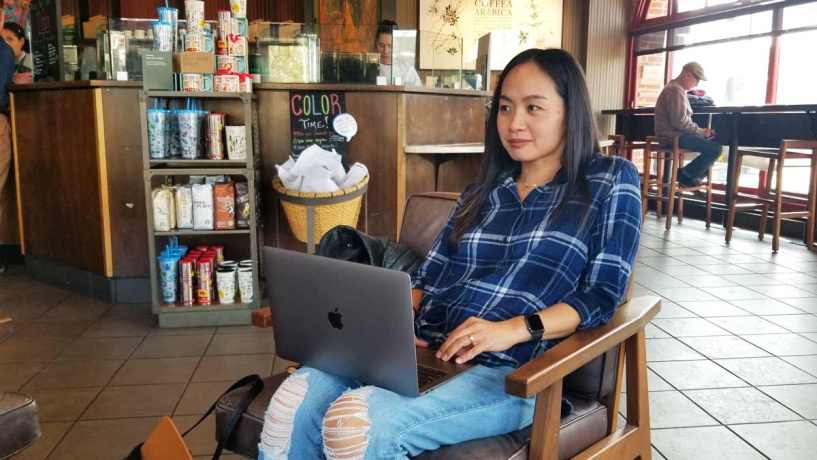How I Created Positive Emotions Even in the Face of War in Ukraine
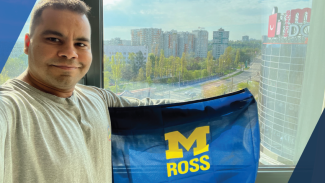
One of the great gifts of being a part of the Ross School of Business Online MBA Program has been broadening my scope of what I can bring back to clinical medicine and beyond.
In the Leadership Residency with Professors Gretchen Spreitzer and Betsy Erwin, one of the key components of the flourishing triangle is positive emotion. Despite being the head of countless trauma resuscitations, I had never placed too much emphasis on it, but I got to see firsthand the value of creating positive emotions for my team and how much more passion it could bring.
Getting the Call
On a Sunday afternoon, I got an email saying they needed a course lead in trauma surgery in Ukraine; by Friday night, I was boarding a plane. I found out that I would be going to Mykolaiv Oblast — 35 miles from Kherson, the current front, and only 95 miles from Crimea.
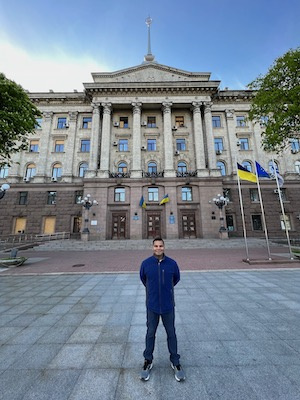
For this mission, I was the course lead for trauma surgery on behalf of the Harvard Humanitarian Initiative and the International Medical Corps, working directly with the chief of trauma from Kiev. Our goal was capacity building to “teach the teachers” so that they could strengthen their own capabilities. We wanted to make sure that Ukrainian medical personnel had the best trauma training during the current conflict.
I had previously been on the rosters for disaster relief with various organizations, including The American College of Surgeons, Project Medishare, and others, but I knew this one would test my mettle.
Putting Learning Into Practice
I had the pleasure of teaching local doctors from fields like OB-GYN, orthopedics, and family practice because they all knew that their innocent compatriots were the main casualties. Even during my time there, I could feel that they sensed a particular urgency because there would soon be a counteroffensive, and Mykolaiv was the first major city away from Kherson that would see the largest influx of wounded soldiers, but more importantly, may become a prime target and have an unspeakable civilian casualty toll.
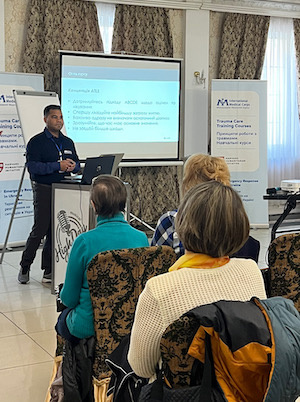
After the safety briefings, we started our work. Despite air raid alarms going off on our phones (yes, there’s an app for that now), I have never seen a group be more attentive and soak up every little detail. They were so grateful to have us and I never once felt unsafe. Two of the students even joked, “Doctor, don’t worry, Igor and I will fall on you so you can keep teaching tomorrow.” That sort of gratitude engendered even more dedication and positive emotions in me.
I don’t know if I could have signed up for this kind of assignment without the flexibility of the OMBA program. My trip to Ukraine was a generational experience and let me see firsthand how leadership and gratitude entwine.





